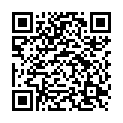|
|
|
| Module code: PIB-EE |
|
|
2V+2PA (4 hours per week) |
|
5 |
| Semester: 4, 5, or 6 |
| Mandatory course: no |
Language of instruction:
German |
Assessment:
Project, paper with presentation
[updated 23.11.2020]
|
KIB-EE (P221-0071) Computer Science and Communication Systems, Bachelor, ASPO 01.10.2021
, optional course, informatics specific, course inactive since 14.10.2024
KIB-EE (P221-0071) Computer Science and Communication Systems, Bachelor, ASPO 01.10.2022
, optional course, informatics specific, course inactive since 14.10.2024
PIB-EE (P221-0071) Applied Informatics, Bachelor, ASPO 01.10.2022
, optional course, informatics specific, course inactive since 14.10.2024
PIB-EE (P221-0071) Applied Informatics, Bachelor, SO 01.10.2026
, optional course, informatics specific, course inactive since 14.10.2024
|
60 class hours (= 45 clock hours) over a 15-week period.
The total student study time is 150 hours (equivalent to 5 ECTS credits).
There are therefore 105 hours available for class preparation and follow-up work and exam preparation.
|
Recommended prerequisites (modules):
None.
|
Recommended as prerequisite for:
|
Module coordinator:
Prof. Dr. Peter Birkner |
Lecturer: Prof. Dr. Peter Birkner
[updated 27.08.2020]
|
Learning outcomes:
After successfully completing this module, students will be familiar with the basics and concepts of single-board computers:
- They will understand the differences between a computer and a microcontroller.
- They will be familiar with the most important application areas of such miniature computers.
- Students will be more familiar with the software and hardware.
- They will be able to perform simple measurement and control tasks with a single-board computer.
- They will understand the concept of a cluster and learn the basics of MPI based on the example of a Raspberry Pi Zero cluster.
[updated 23.11.2020]
|
Module content:
- Introduction ( Why use single-board computers at all? History and development, differences between Raspberry Pi and Arduino, important applications)
- Hardware (Models, processors, connectors, compute modules, general purpose input output, sensors, firmware)
- Software (Operating systems, brief introduction to UNIX, Wolfram Mathematica, Raspi as web server)
- Network (Raspi as VPN gateway, SSH, Samba client)
- IoT (Raspi as Z-Wave controller with FHEM)
- Programmierung (Assembler, scripting languages, Python, C)
- The GPIO interface (experiments with the OnBoard LED, temperature sensors, HATs)
- The I2C bus
- A Raspberry Pi cluster consisting of 4 Raspberry Pi Zeroes (overview, installation and configuration)
- Introduction to parallel programming with MPI (Message Passing Interface) and the Raspberry Pi cluster
Other possible topics:
- Emulating a Raspberry Pi
- Single-board computers from other manufacturers
[updated 23.11.2020]
|
Recommended or required reading:
[still undocumented]
|
Module offered in:
WS 2024/25,
WS 2023/24,
WS 2022/23,
WS 2021/22,
WS 2020/21
|


